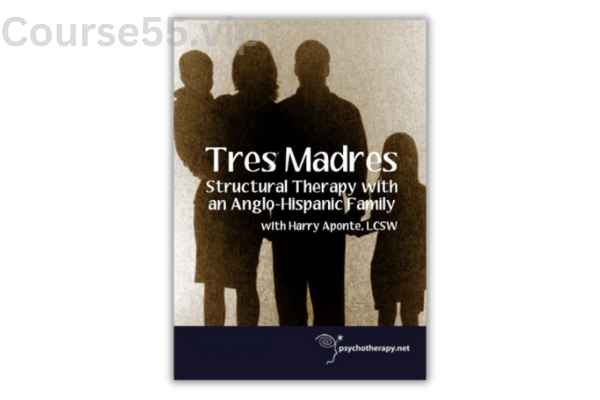-
×
 Legal and Ethical Issues in Behavioral Health in South Carolina By Lois Fenner - PESI
1 × $23.10
Legal and Ethical Issues in Behavioral Health in South Carolina By Lois Fenner - PESI
1 × $23.10 -
×
 Transgender & Gender Non-Binary (TGNB) Clients: Clinical Issues and Treatment Strategies By lore m dickey - PESI
1 × $23.10
Transgender & Gender Non-Binary (TGNB) Clients: Clinical Issues and Treatment Strategies By lore m dickey - PESI
1 × $23.10 -
×
 Legal Issues in Behavioral Health Maryland: Legal and Ethical Considerations By Lois Fenner - PESI
1 × $23.10
Legal Issues in Behavioral Health Maryland: Legal and Ethical Considerations By Lois Fenner - PESI
1 × $23.10 -
×
 Self-Regulation & Executive Functioning in Children and Adolescents: Visual Strategies and Hands-on Techniques to Provide Structure, Predictability, and Routines By Kathy Morris
1 × $23.10
Self-Regulation & Executive Functioning in Children and Adolescents: Visual Strategies and Hands-on Techniques to Provide Structure, Predictability, and Routines By Kathy Morris
1 × $23.10 -
×
 Mindfulness-Based Stress Reduction for Teens By Gina Biegel - PESI
1 × $23.10
Mindfulness-Based Stress Reduction for Teens By Gina Biegel - PESI
1 × $23.10 -
×
 What to Do in the First 90 Days of Your New Job
1 × $23.10
What to Do in the First 90 Days of Your New Job
1 × $23.10 -
×
 Couples on the Brink: When Is Enough Enough? By Terry Real - PESI
1 × $23.10
Couples on the Brink: When Is Enough Enough? By Terry Real - PESI
1 × $23.10
Tres Madres: Structural Therapy with an Anglo/Hispanic Family with Harry Aponte
$39.00 Original price was: $39.00.$7.70Current price is: $7.70.
SKU: C55vip.462624CDmnKVV
Category: Download
Tags: Aponte, Harry Aponte, Hispanic Family, Structural Therapy with an Anglo, Tres Madres
Tres madres: Structural therapy with an Anglo/Hispanic family – Digital Download!

Tres Madres: Structural Therapy with an Anglo/Hispanic Family with Harry Aponte
Overview

Introduction – Unveiling Family Dynamics Through Structural Therapy
Among the various approaches in family therapy, few resonate as deeply as structural therapy, especially when practiced by seasoned clinicians like Harry Aponte. In the video session “Tres Madres: Structural Therapy with an Anglo/Hispanic Family,” Aponte masterfully explores complex relational patterns within a family weighed down by generational trauma. The session revolves around eight-year-old Melanie, whose emotional disturbances, including sleep issues and frequent tearful episodes, signal deeper underlying issues. Throughout this powerful interaction, the audience is given an intimate view of the therapy process and the emotional shifts that begin to take shape amid longstanding turmoil.
Starting Point – Unraveling Melanie’s Emotional Distress
Melanie stands at the center of the therapy session, her emotional struggles offering critical clues into the family’s deeper, unspoken wounds. With a compassionate but firm approach, Aponte creates a safe environment to unearth painful histories. As he navigates through family dysfunction, the impact of generational alcoholism surfaces prominently, shedding light on the broader systemic issues influencing Melanie’s behaviors.
Her sleep problems and emotional outbursts are portrayed not just as isolated symptoms but as manifestations of intergenerational wounds. Melanie’s turmoil is inseparably linked to her mother Lori and grandmother’s unresolved struggles, forming an invisible thread of misunderstanding and pain. By first spotlighting Melanie’s experience, Aponte sets the stage for a broader examination of familial roles and communication breakdowns. True healing, he emphasizes, requires more than symptom management—it demands a restructuring of relationships and redefinition of family roles.
Redirecting the Lens – Positioning Lori at the Core
As the session progresses, Aponte shifts his attention from Melanie to her mother, Lori, whose personal history is central to the family’s current struggles. Lori is encouraged to step into a leadership position within the family—a role Aponte likens to being the “chairman of the board.” This metaphor underscores the necessity for Lori to lead with strength and clarity.
Through promoting the creation of adult agreements regarding parenting, Aponte fosters a framework for Lori to build healthier dynamics with both her children and her mother. Systemic therapy principles come alive here, as he highlights how poor communication perpetuates cycles of dysfunction. Lori’s journey involves not only embracing her leadership role but also reconciling her Anglo/Hispanic identity, which carries its own layered expectations. Aponte skillfully navigates these cultural nuances, showing how embracing one’s heritage can become a tool for transformative change within the family system.
Emotional Shifts – Navigating Defensive Reactions
Throughout the therapy session, viewers witness Lori undergo a significant emotional evolution. Within the safety of Aponte’s guidance, Lori confronts not only outward conflicts but also the internalized fears and defenses shaped by her traumatic upbringing. These defenses, while initially protective, have long obstructed deeper connections with her children.
A particularly moving moment arises when Lori expresses a budding sense of hope—a glimpse of life beyond inherited chaos. This marks a crucial turning point from merely coping to envisioning authentic healing. Aponte’s emphasis on vulnerability and proactive engagement illuminates the non-linear nature of healing, reminding us that progress often comes in waves, requiring both courage and resilience.
Maternal Forces – Evaluating the Roles of the Three Mothers
A pivotal part of the session involves examining the influence of the three key maternal figures in Melanie’s world: Lori, her mother, and her grandmother. Each woman brings her own story, stitched together with elements of love, pain, and ingrained behaviors. Aponte’s observations open the door for honest conversations, where unspoken resentments and misconceptions can be voiced.
He stresses the importance of understanding and differentiating these maternal roles, encouraging a cooperative approach to caregiving built on negotiation and empathy. Critical reflections arise, prompting questions like: How can mothers support each other across generations? How can wisdom from the past be harmonized with current needs? This inclusive perspective lays a foundation for stronger family bonds.
Key Maternal Roles Highlighted:
-
Lori: Must assume assertive leadership and promote open communication.
-
Grandmother: Offers historical context but may need to adapt to modern parenting realities.
-
Melanie’s maternal influences: Struggle between honoring traditions and embracing new parenting frameworks.
Disrupting the Patterns – Confronting Inherited Trauma
One of the major hurdles addressed during the session is dismantling the patterns of trauma that silently govern family relationships. Aponte demonstrates an acute sensitivity to how issues like alcoholism ripple across generations, creating chaos that lingers long after the original events.
The therapeutic dialogue reveals how Lori’s upbringing amidst addiction molded her defense mechanisms—withdrawal, avoidance, and hypervigilance—all intended to protect but ultimately creating distance. By compassionately encouraging the family to face painful histories without judgment, Aponte enables them to loosen the grip of the past, making room for new patterns rooted in trust and empathy.
Charting a New Course – Building Hope for the Family’s Future
By the session’s conclusion, Lori shows signs of genuine transformation, embodying a newfound openness and hope for her family’s future. Having unraveled layers of personal and ancestral pain, she appears more willing to forge supportive connections and embrace change. This shift signifies not only personal growth but a beacon of possibility for Melanie and the broader family network.
Aponte’s hopeful debrief to the referring social worker underscores a cautiously optimistic outlook. Though he acknowledges the road ahead will not be without challenges, he outlines a collaborative, compassionate path forward. Structural therapy, blended with dedication and reflection, promises a real chance at lasting healing.
Session Takeaways:
-
Prioritizing honest, open communication.
-
Confronting and understanding familial history to disrupt cycles.
-
Embracing hope and proactive change as cornerstones of healing.
Structural Therapy in Practice – Practical Lessons for Therapists
The insights from this session extend well beyond one family, offering valuable strategies for practitioners employing structural family therapy:
-
Clarify family roles: Encourage accountability by helping members define and understand their responsibilities.
-
Promote safe emotional expression: Cultivate environments where emotions are validated and shared without fear.
-
Explore intergenerational legacies: Examine how past experiences inform present behaviors to deepen therapeutic outcomes.
Aponte’s casework reminds therapists that addressing immediate symptoms is only part of the process; true healing lies in reweaving the entire familial narrative.
Final Reflections – The Transformative Power of Structural Therapy
Reflecting on “Tres Madres,” we are reminded of the delicate interplay between family dynamics and historical trauma. Guided by Harry Aponte’s expertise, the session reveals how genuine healing is possible not just for individuals, but for entire families. Redefining family roles and understanding the past is not merely theoretical—it is an emotional journey requiring courage, vulnerability, and persistent hope. As Aponte demonstrates, a single therapeutic conversation can spark lasting transformations, weaving new, stronger connections across generations and opening the door to a healthier, more unified future.
Frequently Asked Questions:
Business Model Innovation: We operate a group buying strategy, allowing participants to share costs and access popular courses at reduced prices. This model benefits individuals with limited financial resources, despite concerns from content creators about distribution methods.
Legal Considerations: The legality of our operations involves complex issues. Although we don’t have explicit permission from course creators to resell their content, there are no specific resale restrictions stated at the time of purchase. This ambiguity creates an opportunity for us to provide affordable educational resources.
Quality Control: We ensure that all course materials purchased are identical to those offered directly by the creators. However, it’s important to understand that we are not official providers. As such, our offerings do not include:
– Live coaching calls or sessions with the course author.
– Access to exclusive author-controlled groups or portals.
– Membership in private forums.
– Direct email support from the author or their team.
We aim to reduce the cost barrier in education by offering these courses independently, without the premium services available through official channels. We appreciate your understanding of our unique approach.
Be the first to review “Tres Madres: Structural Therapy with an Anglo/Hispanic Family with Harry Aponte” Cancel reply
You must be logged in to post a review.












Reviews
There are no reviews yet.